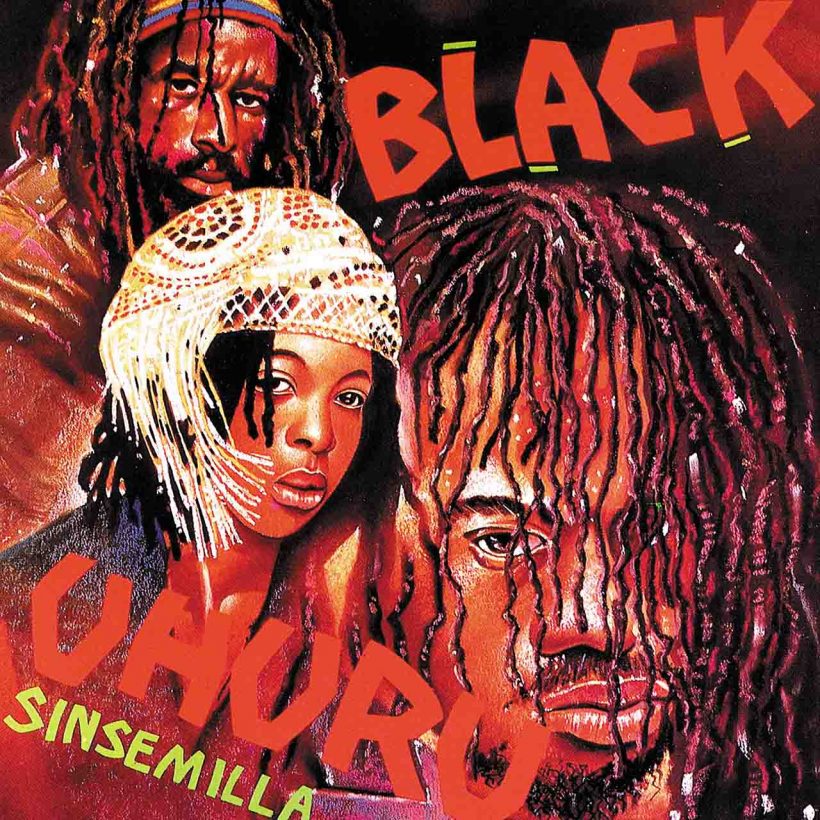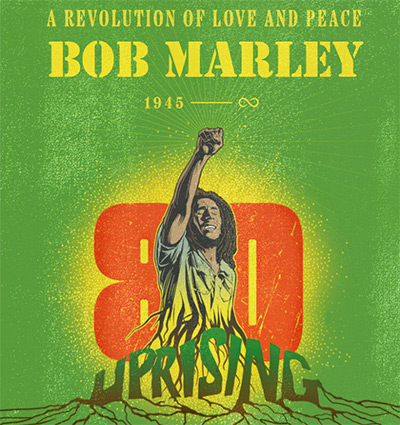‘Sinsemilla’: Black Uhuru’s Creative And Compelling Roots Reggae Triumph
It may not reach the heights of the epochal ‘Red,’ but this Sly & Robbie collaboration is almost just as good.

At its peak Black Uhuru brilliantly merged uncompromising roots militancy with a keen sonic progressivism, establishing itself as the most creatively vital and commercially successful of reggae’s second-generation groups. Founded in the Waterhouse section of Kingston in the early 70s by vocalist Derrick “Duckie” Simpson, the group’s sound wouldn’t fully coalesce until a few years later when, post-several personnel changes, lead singer Michael Rose and South Carolina-born singer, dancer, and former social worker Sandra “Puma” Jones joined Simpson to form the trio’s most celebrated iteration. Rose’s tortured, expressive delivery, offset by Jones’ and Simpson’s haunting high/mid-range harmonies, formed a revelatory combination. Just as crucial would be the group’s relationship with reggae’s greatest rhythm section, producers Sly Dunbar and Robbie Shakespeare, whose innovative sonic tweaks pushed the trio to exciting heights.
Listen to Black Uhuru’s Sinsemilla now.
The initial Black Uhuru-Sly & Robbie collaborations yielded such classic singles as “General Penitentiary” and “Guess Who’s Coming to Dinner” – collected on the Rose-Jones-Simpson line-up’s first album together, 1979’s Showcase, and picked up internationally to universal acclaim. However, 1980’s Sinsemilla, the first Black Uhuru LP of original material for Island Records, fully launched the group as an album-oriented act committed to carrying forth the torch of roots authenticity amidst reggae’s ever-rapidly evolving and shifting styles. Ironically, though Jones appears prominently on the cover artwork, she was unavailable for the LP’s recording sessions, leaving much of the heavy lifting to Rose.
Throughout Black Uhuru’s Sinsemilla, Rose proves well up to the task. In Jah Rastafari, he unequivocally states on the album’s opener, there is “Happiness.” But within his devotion there’s room for self-actualization, even daydreaming: “There’s no mercy to those who have ability and don’t use it/Waste it/I would like to go all over the world – to Germany, to France, Tokyo… happiness.” “World Is Afrika” eschews cheery celebration of the African Diaspora in favor of indictments of land wars and crimes against humanity: “The whole world is Afrika/But it’s divided in continents, states, zones and cities of no pity.” “Vampire” finds him venturing into Bram Stoker territory, cleverly exploring an extended metaphor for Babylon’s bloodsuckers. On “Push Push,” a meditation on the precariousness of higher consciousness, his terrific lead performance is a study in elongated phrasing, interspersed with unexpected, playful quotes from Donna Summer’s “Bad Girls.”
Rose’s charismatic, feverish testifying is symbiotically tethered to Sly & Robbie’s forward-facing production, which embraces the atmospheric spatiality of dub and beautifully incorporates then-new studio technology. Primary within this sonic palette are Dunbar’s Syndrums and Sticky Thompson’s filtered percussion, which drive the rhythms to absolutely percolate. Thus fueled, songs like the anti-apartheid “No Loafing” and the ganja anthem title track effectively demonstrate that the roots sound, thought to be in decline with its global figurehead Bob Marley’s failing health, was still very much open to compelling creative possibilities. Incredibly, Black Uhuru and Sly & Robbie’s definitive collaboration, Red, was still a year away. Sensimilla is the rare intermediary work virtually on par with the classics it bridges.












